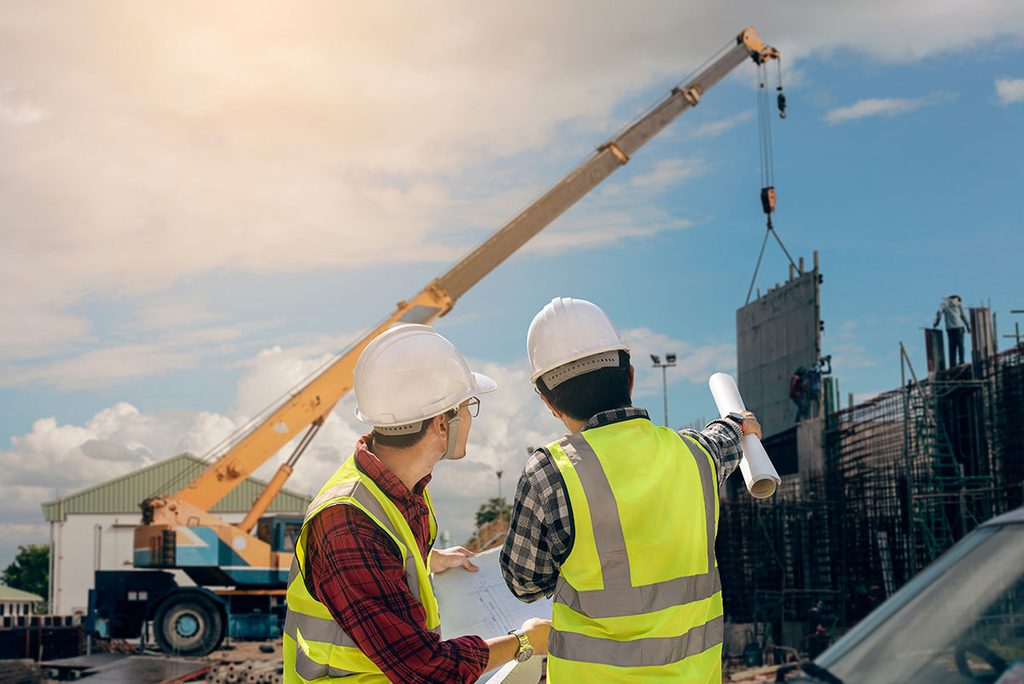
Anyone who works in the construction industry will tell you, regardless of their job role or seniority, the margins and budgets are tight, and the safety and compliance standards high. Also, due to the high-risk nature of a construction site for both staff and the public, it is a heavily regulated industry.
The industry faces and must adhere to a level of corporate, social, and environmental responsibility. There are many elements of construction that require management, reporting, and organisation. With many calling on the support and assistance of telematics or tracking technology.
With health and safety at the forefront of it all, any systems or software that can keep management aware and in control is a welcome addition. Managing a construction site means being responsible for a lot of different types of machinery, equipment, and vehicles. All of which cost money to purchase, maintain, and use every day. It’s an expensive business, and with budgets often thinly spread, cost-saving where possible becomes a priority. With a telematics system construction companies can now reap many benefits.
Save money and time
Because of the pressures and demands the industry raises, it is important for construction companies to keep track, and keep control of their assets. When it comes to on-road and off-road vehicles, management needs to know where their vehicles are and what they are doing. Also, they must keep on top of maintenance and repair requirements to ensure total compliance across their fleet. In more than one way, this can cost the business money; the cost of repairs, the cost of downtime, and the cost should a vehicle slip through the net of safety standards.
There are many reasons why construction companies need telematics. Telematics can highlight inefficiencies within the business and opportunities to reduce costs. For example, insight into driving styles can reveal huge amounts of potential savings in fuel each month. Rather than spending hours compiling information from potentially hundreds of assets, the data is automatically gathered and put into a digestible format. With telematics, a number of elements in construction management become simpler. For example, maintaining asset security, maximizing fleet utilization, and staying efficient. All of which when optimized support saving time and keeping costs low.
Improve Security with telematics
With a telematics system in place, every vehicle is now accounted for and monitored. The benefit of doing so, firstly, is it allows site managers to keep an asset inventory and activity log. So, any vehicles or machinery in use will be on the record. Telematics for the construction industry can help construction managers to ensure their equipment is being used efficiently, at the right time, and with remote Tacho download, by the right person. Naturally, this will improve the security of a site and prevents the misuse of assets. The platform stores data and is then available to download in a customizable report from the platform. So should a company be a victim of theft, or lose track of an asset, they can review the historical location and activity data. Scheduled reports can run weekly, monthly, or however often you want! Keeping management aware and informed on their fleet activity.
GPS tracking is the bread and butter of telematics, with which comes geo-fencing. Geo-fencing and real-time alerts make managers aware of any assets that go beyond the set location or time parameters. This can greatly reduce the threat of theft and increases the likelihood of recovery should anything become lost or stolen. Also, it gives managers instant visibility of the vehicles they are responsible for, at any time, from any device.
Simplify Compliance & Maintenance
Due to the great health and safety risks involved, the construction industry is one of the most highly regulated. So, it is imperative that compliance and safety standards are upheld. From a compliance point of view, telematics can be a very useful tool for management to ensure their site is running above-board. For vehicles and machinery, tracking removes the potential for maintenance and repair work to go unnoticed or neglected. Over time vehicles in any industry will suffer some wear-and-tear.
However, when you are managing hundreds of vehicles it is easy enough for a fleet to fall outside of compliance rules. Also, with time pressure always on for a job or project to complete, downtime to conduct these repairs can be a costly exercise. As well as letting management know when a vehicle needs some TLC, tracking can support companies to see how they can re-allocate assets. Utilize their fleet to work at optimum efficiency, avoiding unnecessary costs, and saving precious time.
An integrated telematics system can work to keep track of your staff too. When you record your team’s working hours, it becomes easier to manage. Ensuring no-one works beyond their dedicated hours, and GB Domestic Working Hours rules are being followed. Telematics highlight how construction companies can use their assets more efficiently. Producing simple to understand, and easy to action reports. The savings in time and money can be colossal, shaving costs down, and boosting productivity.